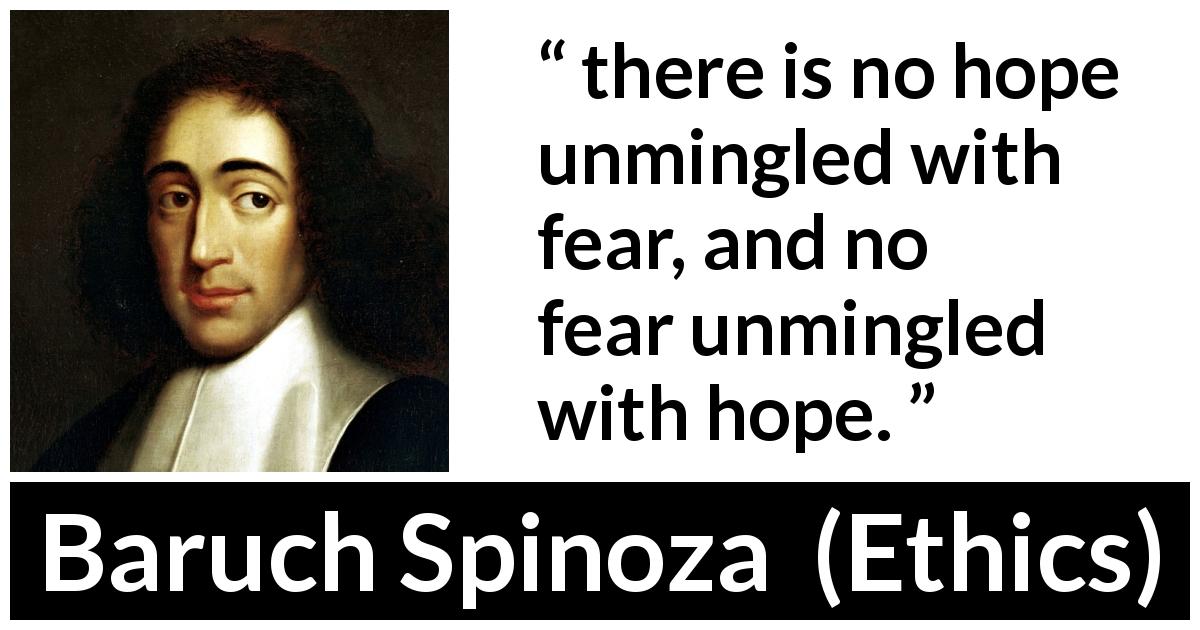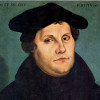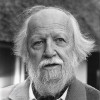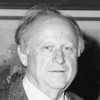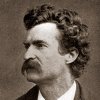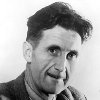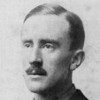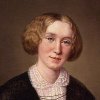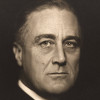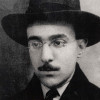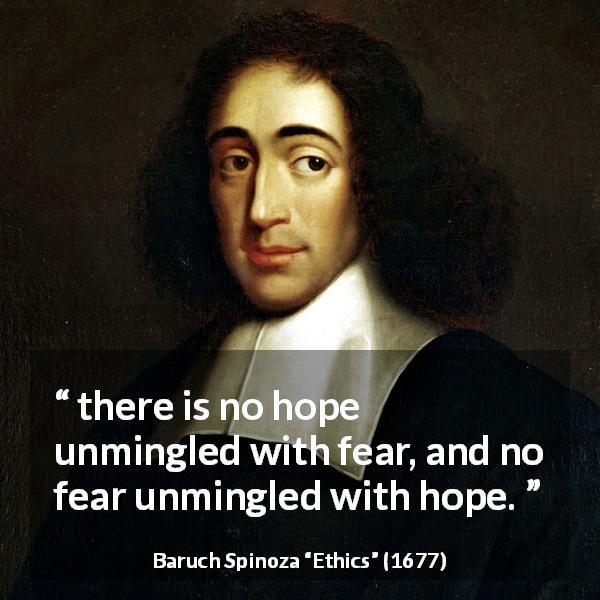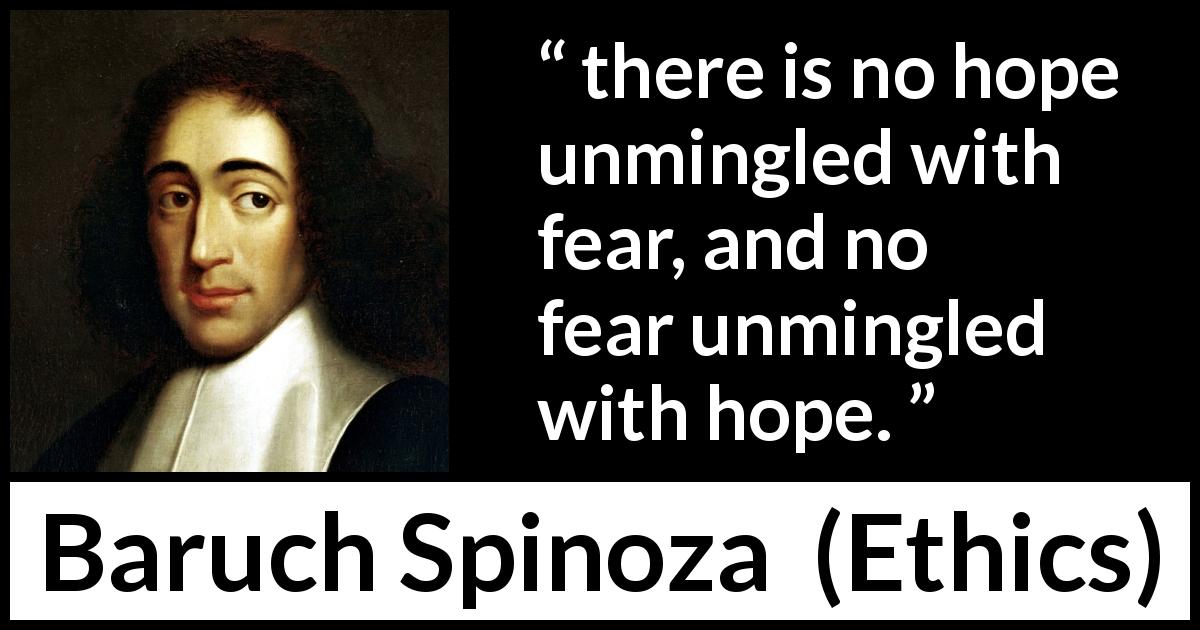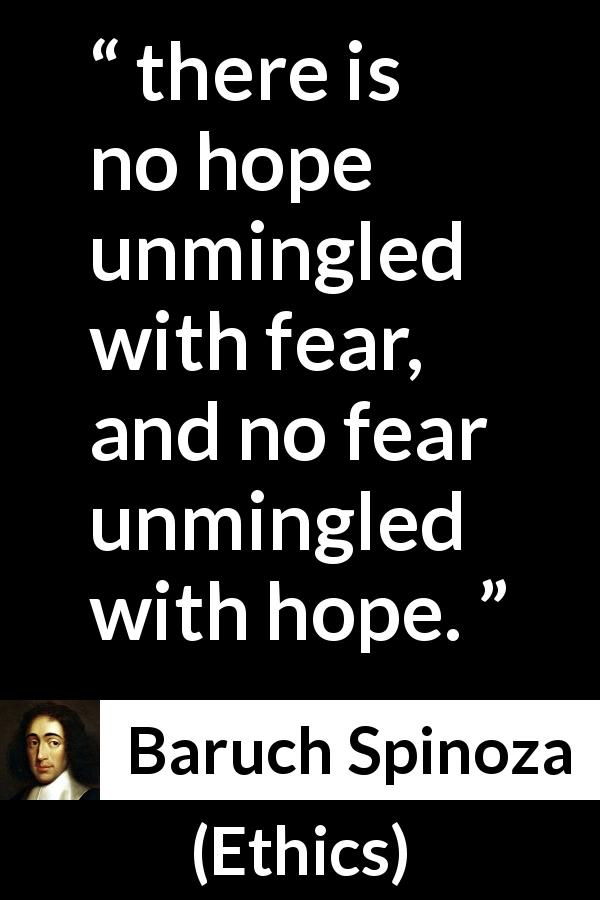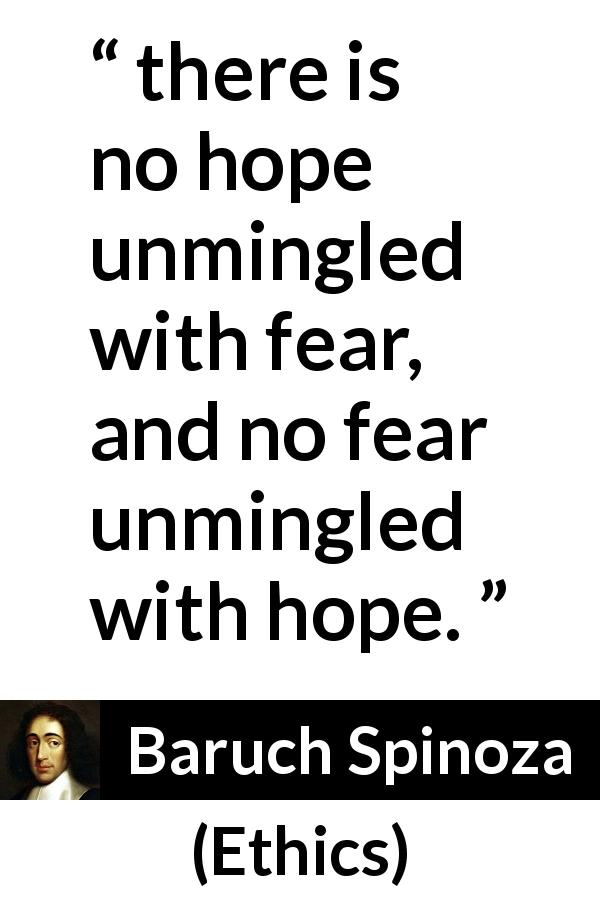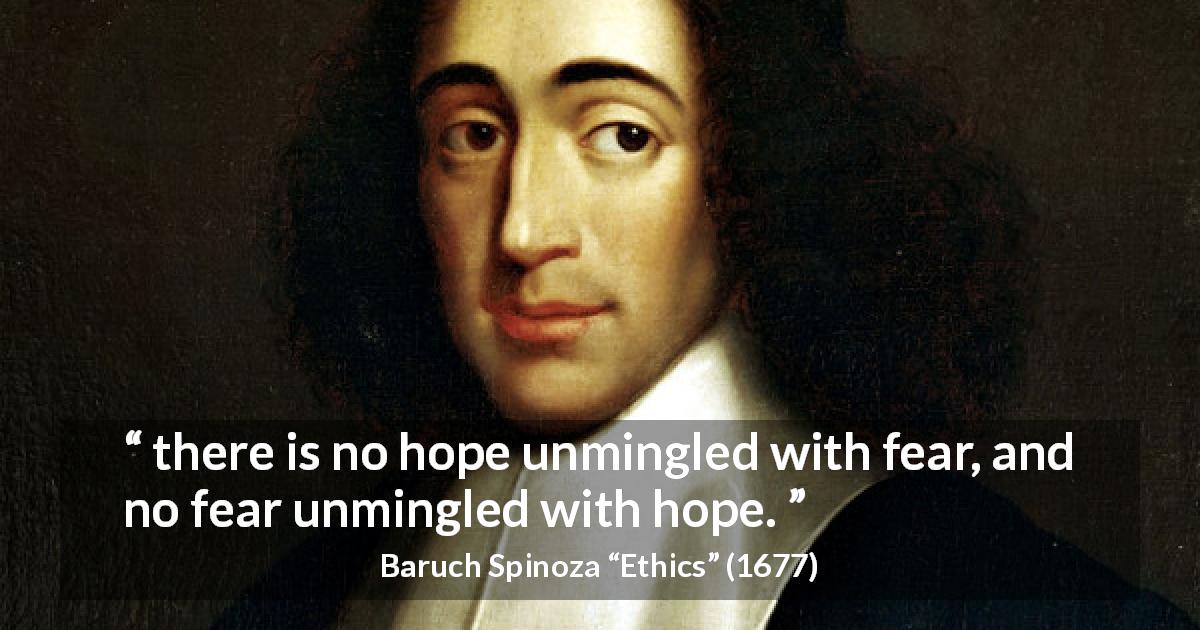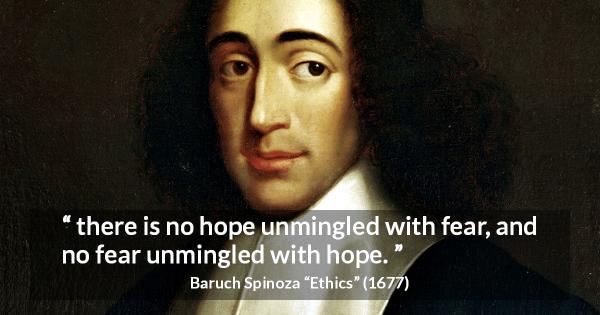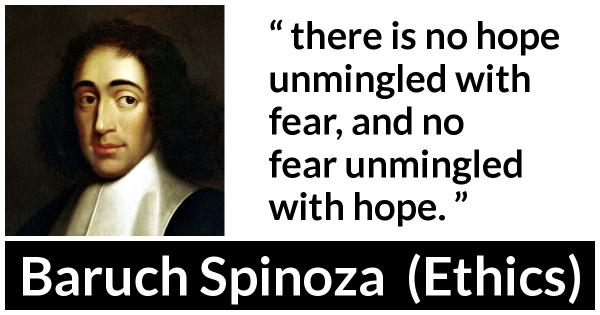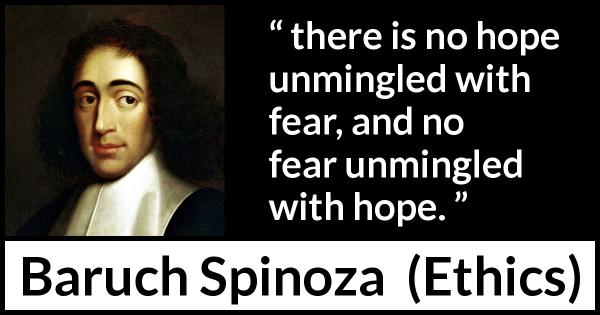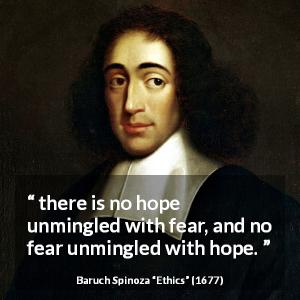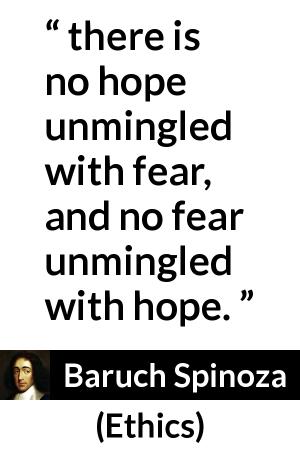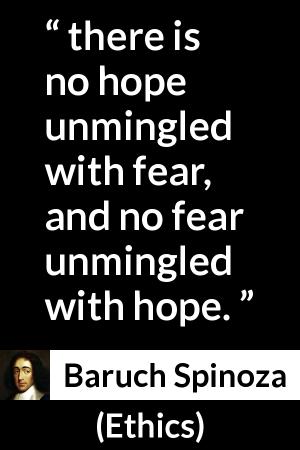“ there is no hope unmingled with fear, and no fear unmingled with hope. ”
Baruch Spinoza, Ethics (1677). copy citation
| Author | Baruch Spinoza |
|---|---|
| Source | Ethics |
| Topic | fear hope |
| Date | 1677 |
| Language | English |
| Reference | |
| Note | Translated by R. H. M. Elwes |
| Weblink | http://www.gutenberg.org/files/3800/3800-h/3800-h.htm |
Context
“Hope is an inconstant pleasure, arising from the idea of something past or future, whereof we to a certain extent doubt the issue.
XIII. Fear is an inconstant pain arising from the idea of something past or future, whereof we to a certain extent doubt the issue (cf. III. XVIII. note).
Explanation—From these definitions it follows, that there is no hope unmingled with fear, and no fear unmingled with hope. For he, who depends on hope and doubts concerning the issue of anything, is assumed to conceive something, which excludes the existence of the said thing in the future; therefore he, to this extent, feels pain (cf.” source
XIII. Fear is an inconstant pain arising from the idea of something past or future, whereof we to a certain extent doubt the issue (cf. III. XVIII. note).
Explanation—From these definitions it follows, that there is no hope unmingled with fear, and no fear unmingled with hope. For he, who depends on hope and doubts concerning the issue of anything, is assumed to conceive something, which excludes the existence of the said thing in the future; therefore he, to this extent, feels pain (cf.” source
